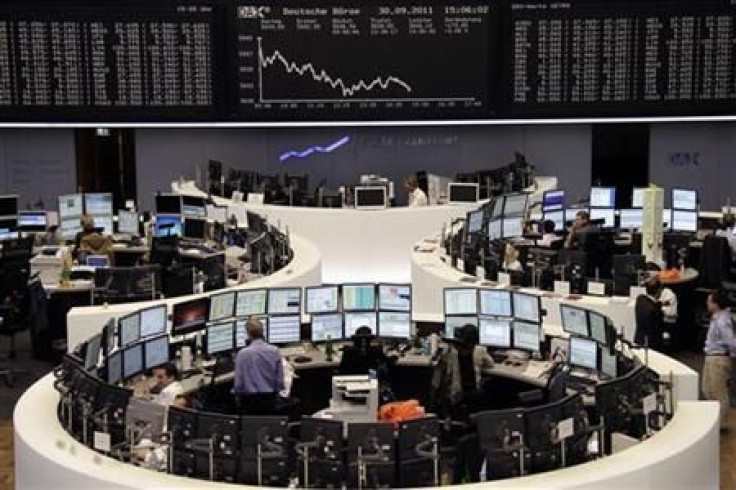European, UK Shares Again Pummeled by Greek Default Fears

Stocks in Europe and the UK are again getting hammered on growing fears that Greece is likely to default on its debt after Eurozone finance ministers decided to delay making a decision on the next tranche of bailout money (8-billion euros) for the Athens government.
As of 9:11 a.m. (New York time), Britain’s FTSE-100 index is down 2.7 percent (below the 5,000 level); Germany’s DAX is plunging 3.3 percent; while France’s CAC-40 Index has tumbled 2.9 percent.
Not surprisingly, European banks -- particularly those based in France and Germany with heavy exposure to Greek government bonds -- are suffering the worst damage.
France’s Societe Generale, BNP Paribas and Credit Agricole are each down at least 6 percent. German's Commerzbank is also down about 6 percent.
In addition, France and Belgium have vowed to stem investor panic regarding French-Belgian bank Dexia by saying they will guarantee loans made by the crisis-hit bank. Dexia, which has heavy exposure to Greek and Italian sovereign debt, has plunged almost 40 percent in value since its board agreed to a break-up.
Meanwhile, Greek officials have already admitted that they will not meet deficit reduction targets mandated by the European Union (EU) and the International Monetary Fund (IMF) either this year or next.
On Monday, Greek officials said its deficit for 2011 would be about 8.5 percent of GDP (down from a figure of 10.5 percent in 2010), but worse than the 7.6 percent target established by the EU and IMF.
Greece projects the 2012 deficit to clock in at 6.8 percent of GDP, again short of the 6.5 percent target.
More worrying, finance ministers have cancelled a meeting that was scheduled October 13 in which they were expected to approve the next installment of cash for Athens. As such, the earliest that Greece might expect to receive money would not be until November.
Eurogroup chairman Jean-Claude Juncker told reporters in Luxembourg that Greece would be able to meet its financial obligations as long as it got the next bailout tranche by November.
Although Juncker said that a Greek default was unlikely, he warned however that private sector creditors who agreed to participate in the second Greek bailout could expect to incur heavy losses.
"The market is increasingly worried about the potential of the Greek crisis and the calamity that could be created if there was a messy default,” Jane Foley, strategist at Rabobank, said, according to BBC.
© Copyright IBTimes 2024. All rights reserved.











